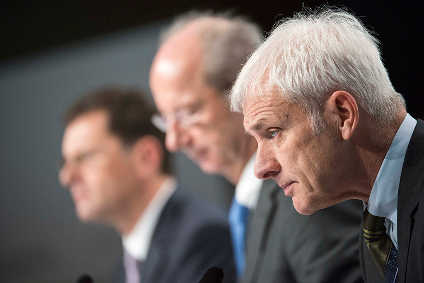While we still do not know the full cost of the diesel emissions scandal to Volkswagen Group (it’s still early days in terms of totting up the full damage), the company has at least set out its long-term strategy. It’s quite a confident statement of intent and strikes the right notes in terms of addressing the big questions and suggesting where a company like VW Group fits in. It’s maybe a bit less bombastic than previous pronouncements that majored on how big VW is and how it will become the world’s biggest automotive player (notably ‘Strategy 2018’ under Martin Winterkorn).
My feeling on VW Group CEO Matthias Müller is that he has done and said the right things since being parachuted in to VW from the rarefied world of licence-to-print-money Porsche. The VW ship has been steadied. A reorganisation and change of culture is happening, stakeholders largely buying in. Recalls have begun in Europe, processes being put in place.
VW faces a very difficult year, but was able to post respectable financial results for the first quarter. Almost inevitably, some market share has been lost in the US and Western Europe, but it has not been a precipitous decline. All things considered, VW can be viewed today as in a better position than it could have hoped for in the immediate aftermath of the crisis. Mr Müller would be unwise to say much in that vein; it could reignite some of the very attitudes that played their part in creating an environment that ultimately spawned dieselgate.
In terms of the long-term strategic direction for the group, the major role for electrification stands out. Electrification and new mobility solutions are highlighted in the new strategy, which includes a major electrification initiative – more than 30 new e-vehicles by 2025 and an annual unit sales target of two to three million. That is going some.
There will also be an emphasis on making the company more efficient. The new strategy talks about realigning the components business and also making efficiencies throughout the business that will improve profitability. The statement said more detail is coming on that in the coming months. That’s where it gets particularly interesting, as VW is often criticised for having too heavy a cost base that it has historically been unwilling to tackle. It could be politically sensitive territory and that’s when Matthias Müller may meet significant resistance, the stakeholder consensus that has emerged thus far potentially coming under pressure. For now though, he can take some satisfaction that the early period of dealing with an unprecedented crisis for Volkswagen has been managed fairly well.







